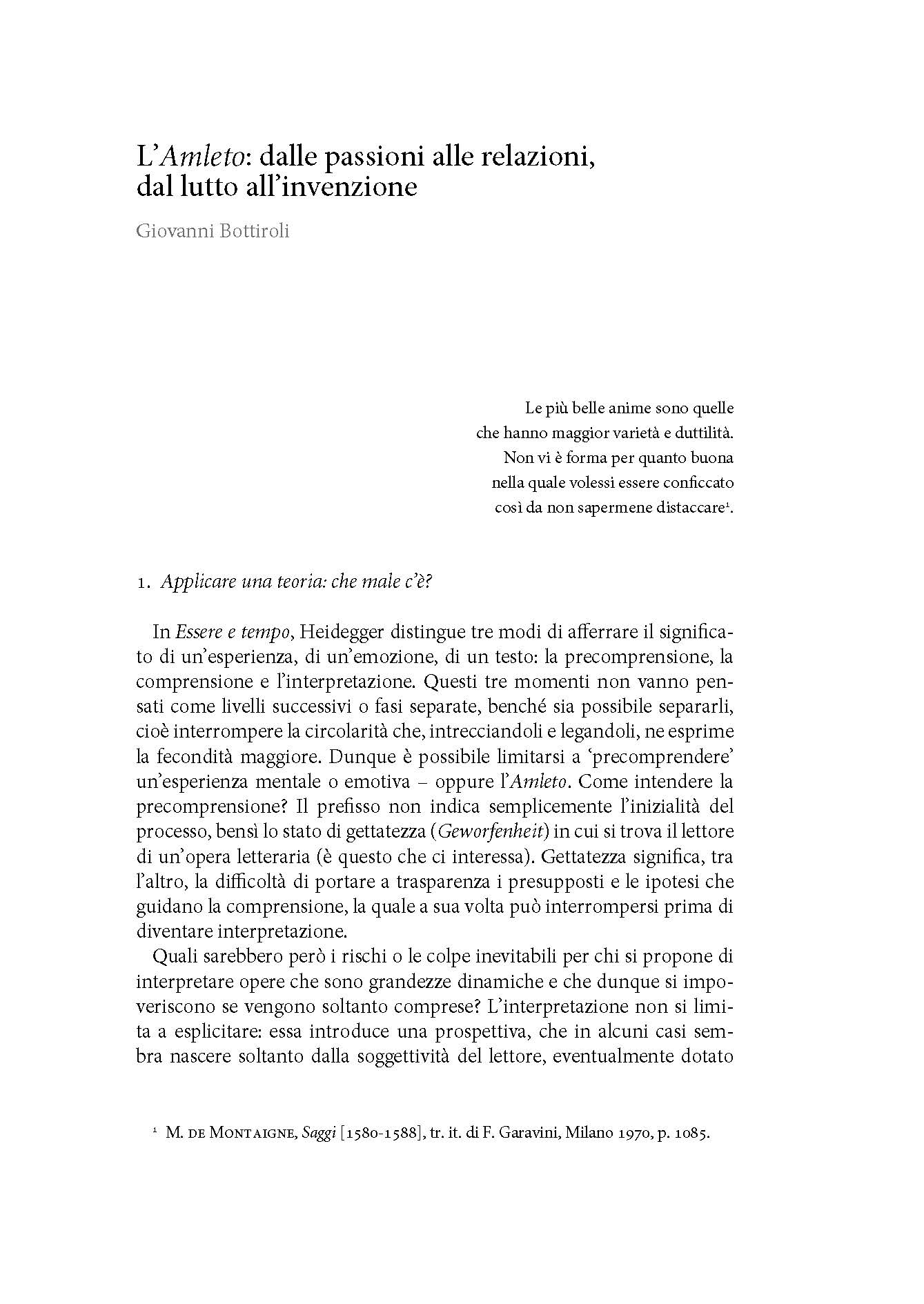L'Amleto: dalle passioni alle relazioni, dal lutto all'invenzione
Contenuto principale dell'articolo
Abstract
In this article, the author argues that it is necessary to create a relationship of circularity between theory and literary texts. Indeed, if on the one side theory generates hypotheses that find their testing ground in literary texts, then on the other the more complex literary texts derive from theory the possibility of a deeper understanding. From the point of view of Freudian and Lacanian psychoanalysis, Hamlet’s identity does not depend only on his internal forces (those that are described in the encyclopaedia of his time), but on relations with other subjects, none of whom, however, can satisfy his desire to be himself. To this, one should add the insoluble problem represented by his mother’s lust. Hamlet’s identity is therefore “out of joint,” devoid of positive models and driven to invention. It is Hamlet’s vital force, along with his linguistic talent, that ensure that he won’t remain imprisoned in the frame of mourning.

